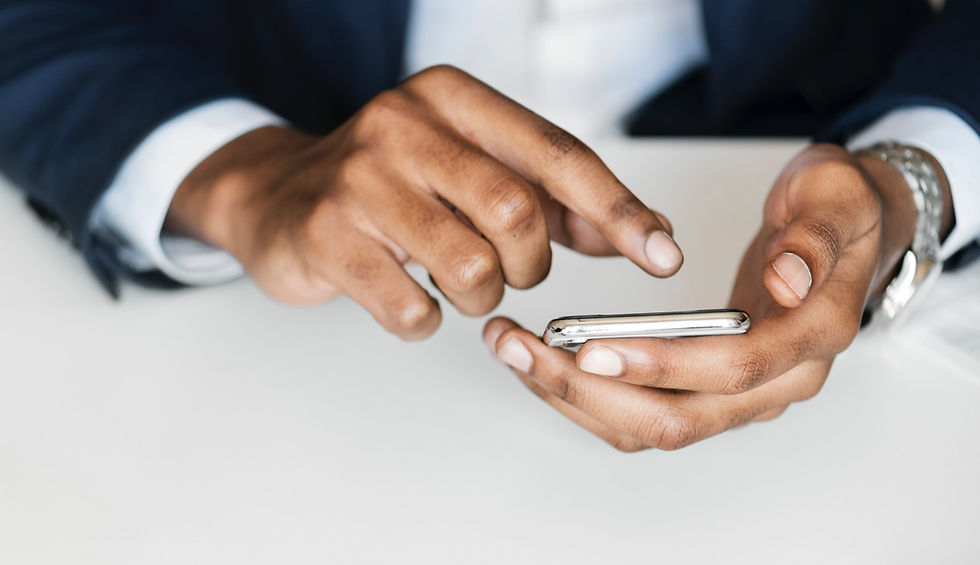How Technology is Responsible for Low Libido
- Curewell Therapies

- May 30, 2024
- 3 min read
In today's fast-paced world, technology is an integral part of our daily lives. From smartphones to laptops, we are constantly connected, making it easier to stay in touch with the world around us. However, this constant connectivity comes with a downside, one that many may not be aware of: the impact of technology on our libido. In this article, we will explore how technology is responsible for low libido and what steps you can take to mitigate its effects.
The Connection Between Technology and Low Libido
1. Increased Screen Time and Sleep Disruption
One of the most significant ways technology affects libido is through increased screen time, especially before bed. Exposure to blue light from screens can interfere with the production of melatonin, a hormone that regulates sleep. Poor sleep quality and insufficient rest can lead to fatigue, stress, and a decreased interest in sexual activity. Studies have shown that individuals who use their phones or other devices late into the night often experience disrupted sleep patterns, which can significantly impact their libido.

2. Stress and Mental Health Issues
The constant barrage of notifications, emails, and social media updates can contribute to heightened stress levels and anxiety. Chronic stress is a known libido killer, as it can lead to hormonal imbalances and a decrease in sexual desire. Moreover, excessive use of technology can lead to mental health issues such as depression, which is also linked to low libido. The pressure to maintain an online presence and keep up with digital communication can be overwhelming, leaving little room for relaxation and intimacy.
3. Reduced Physical Activity
Technology has made it easier to be sedentary. With the rise of remote work, streaming services, and online shopping, many people spend a significant portion of their day sitting. Lack of physical activity can lead to weight gain, poor circulation, and reduced energy levels, all of which can negatively impact sexual health. Regular exercise is known to boost mood, increase energy, and improve overall well-being, which are essential for maintaining a healthy libido.
4. Digital Distraction and Relationship Strain
Technology can create a barrier between partners, reducing opportunities for meaningful interaction and intimacy. When individuals prioritize screen time over spending quality time with their significant other, it can lead to feelings of neglect and disconnection. This digital distraction can strain relationships, making it difficult to maintain a healthy sexual connection. Couples who engage in activities together and communicate openly about their needs and desires tend to have better sexual relationships.
Mitigating the Impact of Technology on Libido
While technology is an unavoidable part of modern life, there are several strategies you can implement to reduce its negative impact on your libido:
1. Establish Tech-Free Zones
Create spaces in your home where technology is not allowed, such as the bedroom. This can help you wind down and promote better sleep hygiene. Consider setting boundaries for screen time, especially before bed, to ensure you get adequate rest.
2. Practice Mindfulness and Stress Management
Incorporate mindfulness practices such as meditation, deep breathing exercises, or yoga into your daily routine to manage stress and anxiety. These practices can help you stay present and improve your mental well-being, which in turn can boost your libido.
3. Stay Physically Active
Make physical activity a priority. Aim for at least 30 minutes of moderate exercise most days of the week. Exercise can improve your physical health, increase energy levels, and enhance your mood, all of which are beneficial for maintaining a healthy libido.
4. Foster Connection with Your Partner
Set aside dedicated time for your partner without the distraction of technology. Engage in activities that promote intimacy and communication, such as cooking together, going for a walk, or simply having a heartfelt conversation.
5. Seek Professional Help if Needed
If you find that stress, anxiety, or depression are significantly impacting your libido, consider seeking help from a mental health professional. Therapy can provide you with the tools and support needed to address these issues and improve your overall well-being. One can consult a good Ayurvedic sexologist like Dr. Sudhir Bhola for the treatment of low libido.
Conclusion
While technology has undoubtedly brought many benefits to our lives, it is essential to be mindful of its potential downsides, particularly its impact on libido. By understanding the connection between technology and low libido, and implementing strategies to mitigate its effects, you can maintain a healthy and fulfilling sexual relationship. Remember to prioritize your well-being and foster meaningful connections with your loved ones, free from the distractions of technology.




